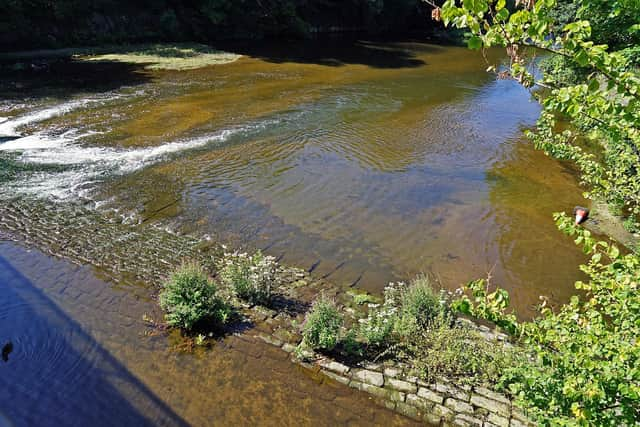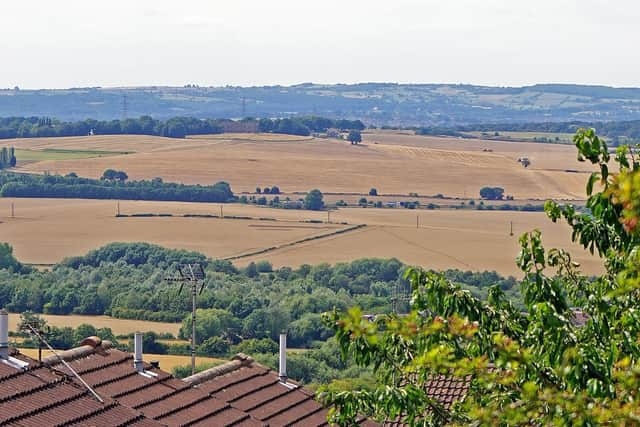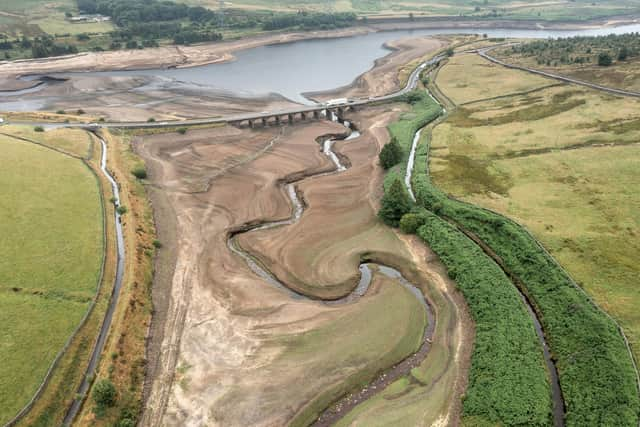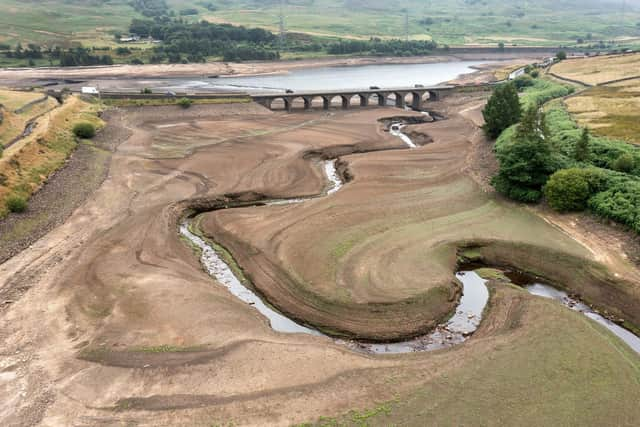Derbyshire water provider leaks 446 million litres of water every day – amid record high temperatures and dwindling reservoirs
This article contains affiliate links. We may earn a small commission on items purchased through this article, but that does not affect our editorial judgement.
and live on Freeview channel 276
Severn Trent, which provide water to homes and businesses across Derbyshire, see 446 million litres of water leak from their network of pipes every day, according to three-year averages.
The Times, which conducted the research, said that this makes the company the second worst in the country for wasting water.
Advertisement
Hide AdAdvertisement
Hide AdOlympic swimming pools hold around 2.5m litres of water when full. This means that, across Severn Trent’s network, the equivalent of 178 Olympic pools is wasted every single day.


Severn Trent is not only one of the most wasteful water companies nationally, but it is also among those doing the least to tackle the issue. Ofwat, the Government body responsible for regulating the UK’s water industry, reported on July 29 that Severn Trent ranked in the bottom three for leakage reduction.
Its figures, again based on three-year averages, show that Severn Trent managed to reduce its water leakage by 3.4% – with only two companies registering a figure lower than this.
A Severn Trent spokesperson said: “We deliver two billion litres of water and take away 3.1 billion litres of wastewater every day across our network of 140,000 kilometres of pipes.
Advertisement
Hide AdAdvertisement
Hide Ad“We’re committed to reducing leakage by 15% by 2025 – the biggest reduction ever in a five-year period – and we’re already making good progress, such as investment in drone technology to detect leaks.


“We are finding and fixing more leaks than ever before – in the last five years we have increased repairs on leaky pipes by 17%.
“Our teams are constantly monitoring the network, checking for flow rate and pressure that may indicate leaks. Their expertise, combined with the technology we use, means we manage to detect 60% of leaks before they become an issue for the public.”
The controversy surrounding water wastage comes after Derbyshire experienced record high temperatures earlier this year – which have had a knock-on effect on the county’s water supply.
Advertisement
Hide AdAdvertisement
Hide AdSevern Trent’s latest situation report revealed that river levels across the area they manage have dropped by 70% amid recent hot spells. The company’s reservoirs have also dwindled to 65.7% of their usual capacity – down from 84.5% at the same time last year.


There have been calls for Severn Trent to introduce a hosepipe ban to stop water levels dropping even further. Stuart Singleton-White, head of campaigns at the Angling Trust, accused Severn Trent and other companies of reacting too slowly to what he believes is now a “drought”.
He said: “The government must declare a drought now and the water companies should stop dragging their feet. We need to be saving every drop of water we can as things will not get better by simply praying for rain. The Met Office are reporting it is unlikely to come anytime soon, and we could well remain in this dry period through to the autumn.”
While Severn Trent has not ruled out a hosepipe ban, the company’s current message is that customers should moderate their use to help maintain water supply for everyone.
Advertisement
Hide AdAdvertisement
Hide AdA Severn Trent spokesperson said: “As the summer sunshine continues, there’s naturally a greater demand for water, so our teams are working around the clock to keep the network in good shape. Our region has experienced the driest July in a century and with no rainfall in the forecast, we’re asking people to be mindful of their water use, as small behavioural changes can add up to a big difference.


“We’d like to thank all our customers for their continued support as the warm and dry weather continues into the summer.”
Severn Trent is also facing criticism over its record on pollution and the salary of its chief executive, Liv Garfield CBE.
Garfield, according to the Mail on Sunday, received an extra £830,000 last year. She ended up receiving £3.9m in 2021 – with perks and bonuses accounting for more than £3m of this total – despite the company raising household bills by around 7.1%. A Severn Trent spokesman did tell the publication that 75% of Garfield’s pay package is 'directly linked to delivery' and reflects 'a range of customer and environmental measures'.
Advertisement
Hide AdAdvertisement
Hide AdAlthough Severn Trent received four stars in a recent Environmental Performance Assessment conducted by the Environment Agency, the most recent annual data from the Rivers Trust shows that multiple storm overflows managed by Severn Trent discharged sewage into rivers across Derbyshire on hundreds of occasions.
The Rivers Trust found that a storm overflow at Wirksworth spilled 164 times for a total of 3201 hours, discharging into the River Ecclesbourne. One at Hathersage discharged 140 times – for a total of 2173 hours – into the River Derwent.
One overflow at Pinxton spent almost 76 full days releasing sewage into the River Erewash – with another at Ambergate discharging into the River Amber for 67 days.
Advertisement
Hide AdAdvertisement
Hide AdWhile Severn Trent may have outperformed other providers, the chair of the Environment Agency – Emma Howard Boyd – criticised the industry as a whole, and urged every company to do more to repair their environmental damage.
She said: “The sector’s performance on pollution was shocking, much worse than previous years.
“Company directors let this occur and it is simply unacceptable. Over the years the public have seen water company executives and investors rewarded handsomely while the environment pays the price. The water companies are behaving like this for a simple reason: because they can. We intend to make it too painful for them to continue as they are.
“Water companies exist to serve the public. Their environmental performance is a breach of trust. The polluter must pay.”